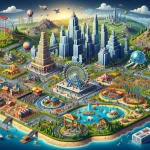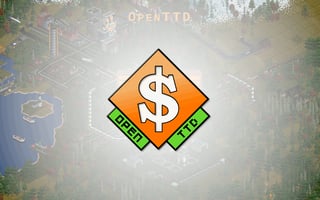Open TTD

GAME INFO
OpenTTD is a free and open-source business simulation game that serves as an enhanced remake of the classic 1995 title, Transport Tycoon Deluxe. In this game, players assume the role of a transportation company manager, tasked with constructing and overseeing intricate networks of trains, buses, ships, and airplanes to transport passengers and cargo across expansive maps. citeturn0search0
Key Features:
- Expanded Maps: Experience larger and more detailed maps compared to the original game, allowing for more complex and extensive transportation networks. citeturn0search2
- Multiplayer Mode: Engage in both cooperative and competitive multiplayer modes with up to 255 players, offering a dynamic and interactive gaming experience. citeturn0search2
- Customization and Mods: Access a vast array of user-generated content, including new vehicles, industries, and scenarios, to tailor the game to your preferences. citeturn0search2
- Cross-Platform Compatibility: Play OpenTTD on various operating systems, including Windows, macOS, Linux, and Android, ensuring a seamless experience across different devices. citeturn0search6
Gameplay Mechanics:
Starting in 1950, players are challenged to build and manage a profitable transportation empire by connecting industries and cities. Strategic planning is essential to optimize routes, manage finances, and outmaneuver competitors. The game continues until 2050, at which point players receive a performance rating based on their achievements. citeturn0search10
Community and Development:
OpenTTD benefits from an active community that contributes to its ongoing development, ensuring regular updates and a wealth of custom content. This collaborative effort has led to numerous enhancements over the original game, solidifying OpenTTD's status as a beloved title among fans of the simulation and city-building genres. citeturn0search8
Conclusion:
For enthusiasts of transportation management games, city-building simulations, and economic strategy games, OpenTTD offers a rich and rewarding experience. Its combination of depth, customization, and community support makes it a standout title in the realm of business simulation games.
























